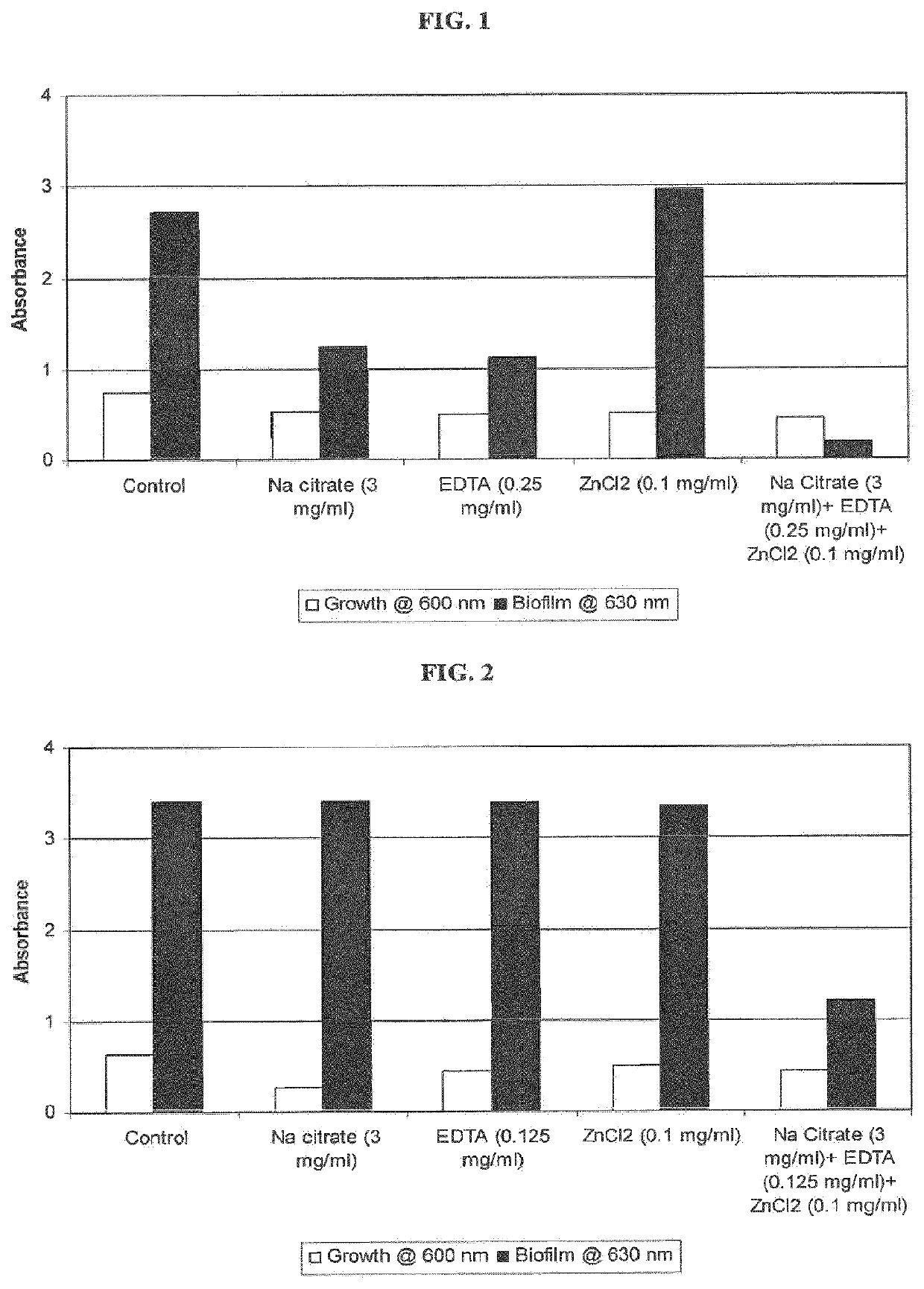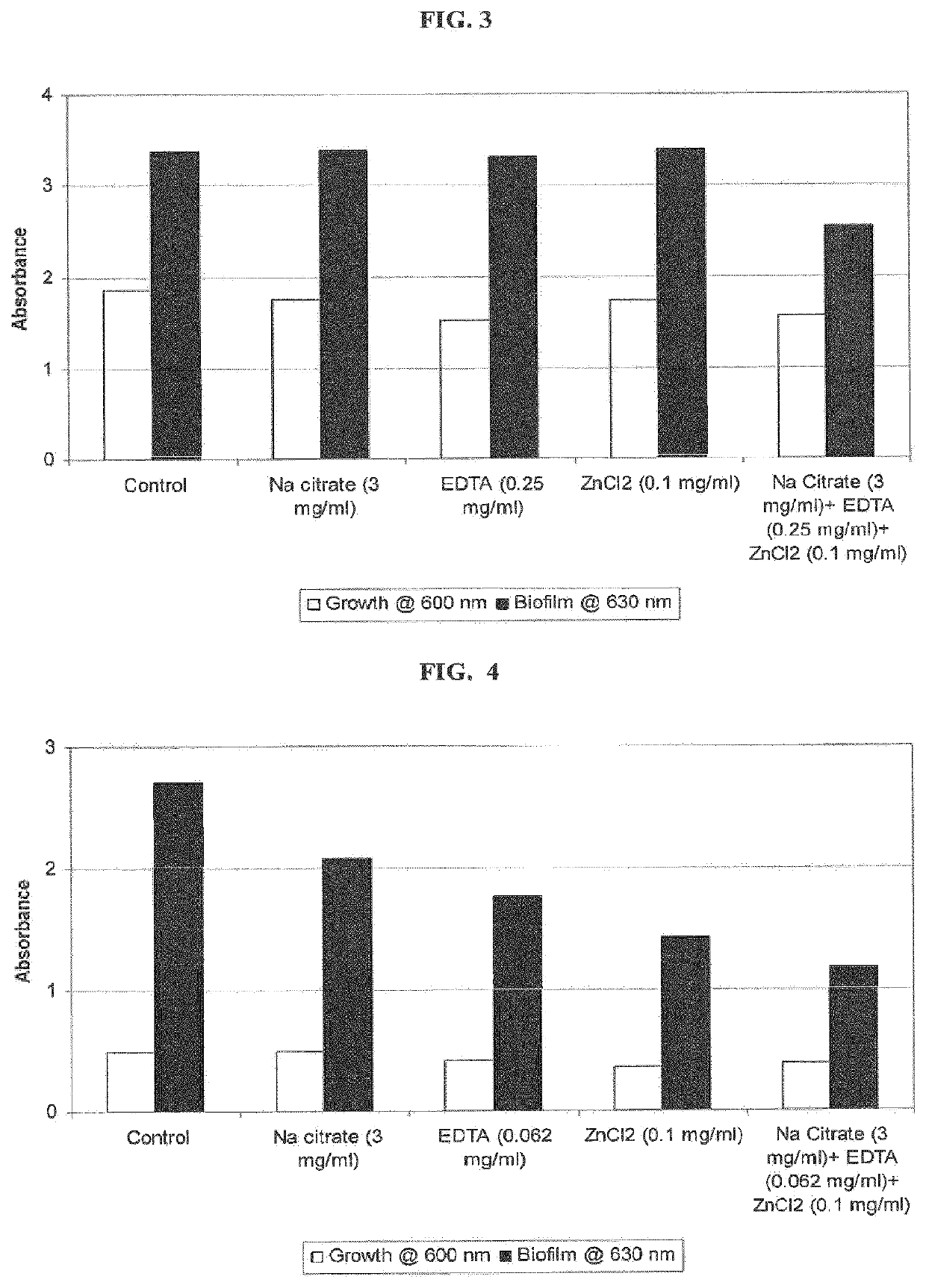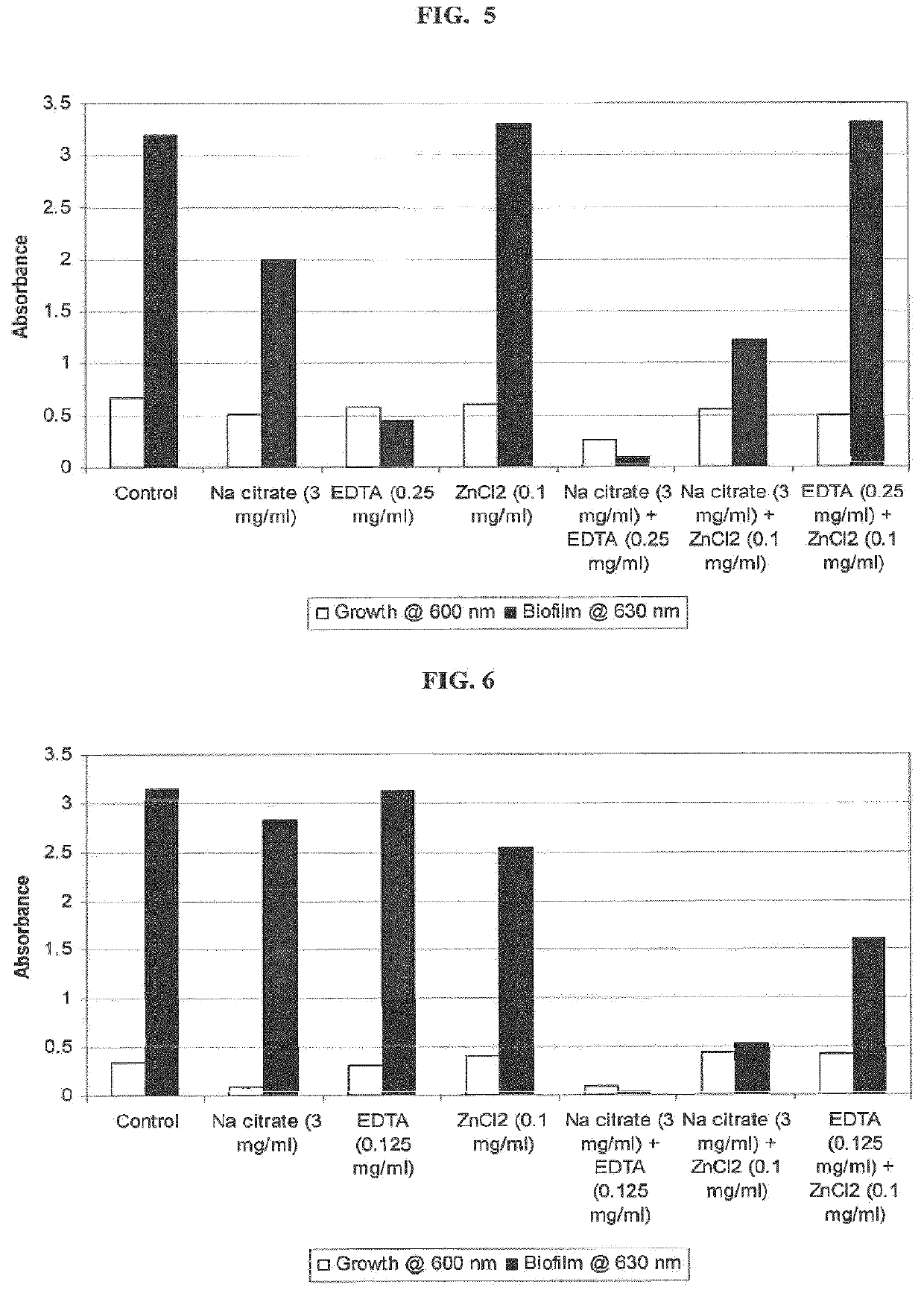Antimicrobial-antibiofilm compositions and methods of use thereof for personal care products
a technology of antimicrobial and antibiofilm composition, which is applied in the direction of biocides, dental prosthetics, othalmoscopes, etc., can solve the problems of contaminating storage containers/solutions, limiting the type and concentration of both cleaning agents, eye infections, etc., to enhance the stability and efficacy of anti-infective compounds.
- Summary
- Abstract
- Description
- Claims
- Application Information
AI Technical Summary
Benefits of technology
Problems solved by technology
Method used
Image
Examples
example 1
y Effect of Sodium Citrate, EDTA and Zinc Chloride Alone and in Combination on Methicillin-Resistant Staphylococcus aureus (MRSA) Growth and Biofilm Formation
[0085]An overnight broth culture of S. aureus was grown in TSB and used as inoculum. 96-well microplates containing TSB in the absence and the presence of each compound (sodium citrate or EDTA or Zinc chloride) separately and together (Sodium chloride+EDTA+Zinc chloride) were inoculated and incubated at 37° C. for 24 hours. Growth of planktonic cells based on absorbance at 600 nm using Labsystems Multiskan Ascent microplate reader was determined. Biofilm was measured by discarding the media in the wells, rinsing the well three times with water, and staining the bound cells with crystal violet. The dye was then solubilized with 33% acetic acid, and absorbance at 630 nm was determined using a microtiter plate reader. A composition, comprising sodium citrate, EDTA and zinc chloride showed an enhanced inhibitory effect on biofilm f...
example 2
y Effect of Sodium Citrate, EDTA and Zinc Chloride Alone, and in Combination on Methicillin-Resistant Staphylococcus pseudintermedius (MRSP) Growth and Biofilm Formation
[0086]An overnight broth culture of methicillin resistant S. pseudintermedius was grown in TSB and used as inoculum. 96-well microplates containing TSB in the absence and the presence of each compound (sodium citrate or EDTA or Zinc chloride) separately and together (Sodium chloride+EDTA+Zinc chloride) were inoculated and incubated at 37° C. for 24 hours. Growth of planktonic cells based on absorbance at 600 nm using Labsystems Multiskan Ascent microplate reader was determined. Biofilm was measured by discarding the media in the wells, rinsing the well three times with water, and staining the bound cells with crystal violet. The dye was then solubilized with 33% acetic acid, and absorbance at 630 nm was determined using a microtiter plate reader. A composition, comprising sodium citrate, EDTA and zinc chloride showed...
example 3
y Effect of Sodium Citrate, EDTA, and Zinc Chloride Alone, and in Combination on Pseudomonas aeruginosa Growth and Biofilm Formation
[0087]An overnight broth culture of P. aeruginosa was grown in TSB and used as inoculum. 96-well microplates containing TSB in the absence and the presence of each compound (sodium citrate or EDTA or Zinc chloride) separately and together (Sodium chloride+EDTA+Zinc chloride) were inoculated and incubated at 37° C. for 24 hours. Growth of planktonic cells based on absorbance at 600 nm using Labsystems Multiskan Ascent microplate reader was determined. Biofilm was measured by discarding the media in the wells, rinsing the well three times with water, and staining the bound cells with crystal violet. The dye was then solubilized with 33% acetic acid, and absorbance at 630 nm was determined using a microtiter plate reader. A composition, comprising sodium citrate, EDTA and zinc chloride showed an enhanced inhibitory effect on biofilm formation, as compared ...
PUM
| Property | Measurement | Unit |
|---|---|---|
| Density | aaaaa | aaaaa |
| Density | aaaaa | aaaaa |
| Density | aaaaa | aaaaa |
Abstract
Description
Claims
Application Information
 Login to View More
Login to View More - R&D
- Intellectual Property
- Life Sciences
- Materials
- Tech Scout
- Unparalleled Data Quality
- Higher Quality Content
- 60% Fewer Hallucinations
Browse by: Latest US Patents, China's latest patents, Technical Efficacy Thesaurus, Application Domain, Technology Topic, Popular Technical Reports.
© 2025 PatSnap. All rights reserved.Legal|Privacy policy|Modern Slavery Act Transparency Statement|Sitemap|About US| Contact US: help@patsnap.com



